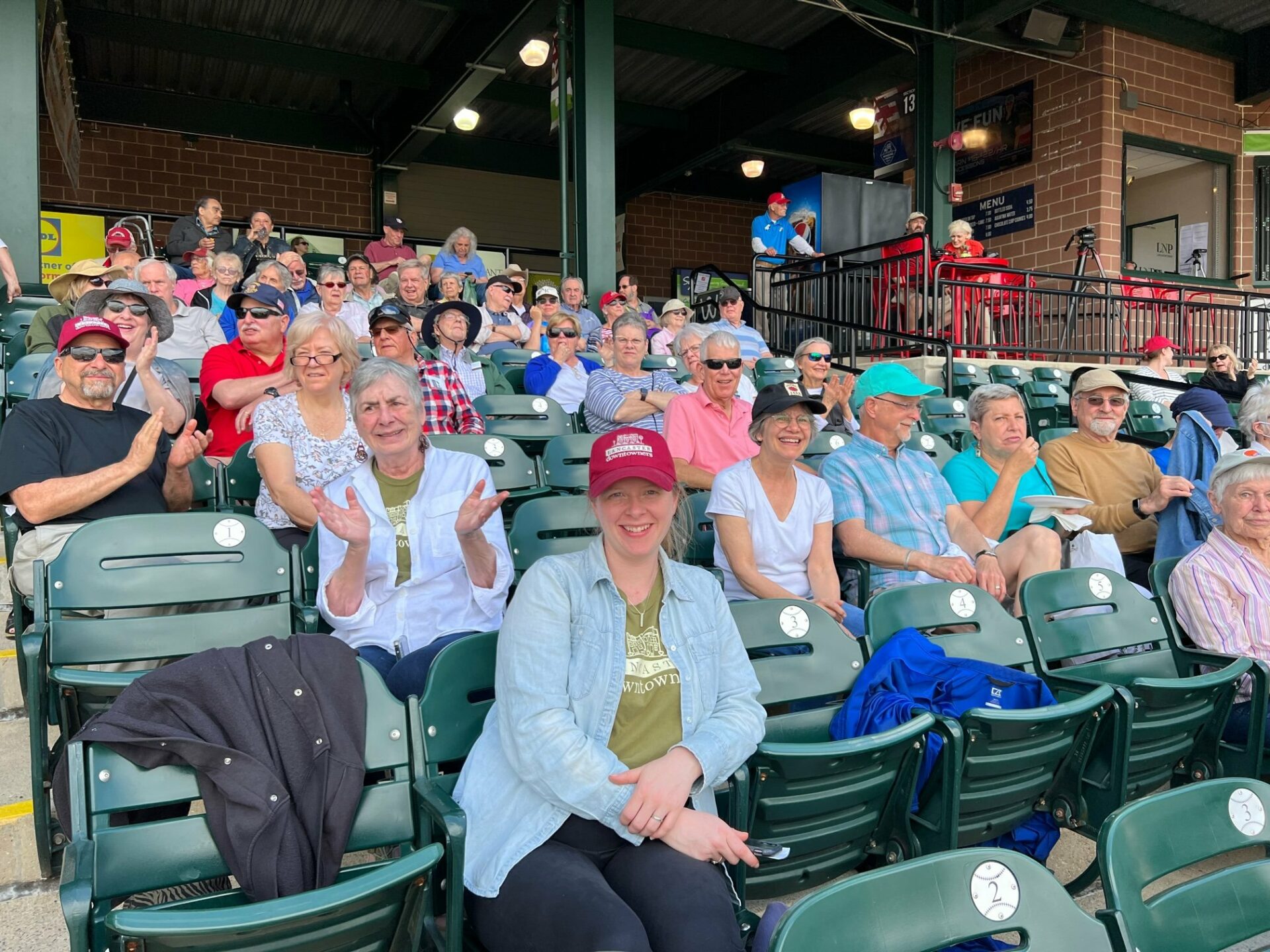
In 1963, the year May was designated as Older Americans Month, life expectancy was 69 years, and the last of those in the generation who would become known as the Baby Boomers were being born.
Nearly 60 years later, that newborn generation is entering old age. Life expectancy has increased by a decade, up to a high of 79 in 2019.
Even with a decrease in life expectancy after the onset of the COVID-19 pandemic, we are living longer than ever. In fact, over the past century and a half, we have added more years to human life than in all previous millennia.
The Baby Boomers are not an aberration. The United States population is going to continue to age. This is a great thing! Our medical, scientific and technological efforts to prolong human lives are working. And a significant turning point is fast arriving: According to the U.S. Census Bureau, by 2034 older adults will outnumber children under the age of 18 for the first time in history.
Instead of the age "pyramid" that existed when many of our current social structures were put in place, we will be a "pillar."
We need to live in a new way, one that recognizes the benefits of multi-generational communities, supports policies and practices that benefit the youngest and eldest and collectively embraces a person-centered perspective.
The theme for 2022's Older Americans Month is Aging My Way. The Administration for Community Living, which sponsors Older Americans Month, recognizes that there is no ‘right way’ to age, stating “This year’s theme focuses on how older adults can age in their communities, living independently for as long as possible and participating in ways they choose.”
While there are as many possibilities for our years as there are people living them, there are four common aspects to consider:
• Planning: Think about what you will need and want in the future, from home and community-based services to community activities that interest you. The National Aging in Place Council provides a workbook for self-exploration. Find where there are gaps in your plan, and learn what resources are available in our community before you need them.
• Engagement: Remain involved and contribute to your community through work, volunteer, and/or civic participation opportunities. Retirement does not and will not look the same. Many people will choose or will be required to work long past 65; workplaces must recognize the value that experienced workers bring, and also be willing to make person-centered adjustments to retain that talent. If and when you do retire, it is time to reinvent.
• Access: Make home improvements and modifications, use assistive technologies, and customize supports to help you better age in place. There are excellent National Home Builders Association Certified Aging-In-Place specialists in our area, who are able to make personalized adaptations to your living environment. Developers and renovators of all ages should implement the principles of visitability when completing rehabilitations or new projects.
• Connection: Maintain social activities and relationships to combat social isolation and stay connected to your community. Loneliness and social isolation can be as damaging to health as smoking 15 cigarettes a day. Neighborhood organizations & senior centers, faith communities, and lifelong learning opportunities bolster the social support provided by familial, friend, and neighbor relationships. Plan at least one meaningful interaction per day.
Individual planning is a start, but on its own is insufficient in a world that was not built for our current and future population.
In order for our communities to benefit from the influence, skills, time and treasures of all generations, society as a whole needs to make decisions that support all ages. It is not enough to ask individuals “Are you ready for life past 80?” without collectively supporting accessible and affordable homes and public spaces, providing eldercare workers a living wage, and eliminating the ageism that pervades in our workplaces, social interactions, and healthcare system.
We need to make adjustments as organizations and communities to foster a culture that will uphold and honor our shifting demographics.
My organization, Lancaster Downtowners has been refining Aging My Way for nearly 15 years. Founded in 2008 and a longtime member of the national Village to Village Network, the Lancaster Downtowners engage older adults in meaningful opportunities that build a multi-dimensional support network to stay informed, involved, and independent in their community.
Through educational & wellness programs, in-home volunteer support, and personalized information and referral, members of Lancaster Downtowners have shifted the conversation from aging-in-place to aging-in-community, and are realizing independence through interdependence.
A broader collaboration that is addressing our shifting demographics is the Age-Friendly Lancaster City initiative. Age-Friendly Lancaster City is an opportunity to bring people of all ages together to rethink our neighborhoods and take action to make them more inclusive and respectful of every generation.
By aligning with the World Health Organization’s (WHO) Age-Friendly Cities and Communities’ Framework, Lancaster has joined forward focused cities across the United States and around the world. The initiative will be implementing key activities related to Housing & Public Spaces; Access to Services; and Purpose & Meaning in Later Life to prepare our community for a future that in many respects has already arrived.
Aging is living. While the framework of Aging My Way recognizes that there is no ‘right way’ to age or live, we must also acknowledge that the options will be limited if we do not increase our consideration of and investment in updated infrastructure, policy, practice and culture to support a community with more elders than youngers.
Older adults play vital, positive roles in our communities as family members, friends, mentors, volunteers, civic leaders, members of the workforce, and more. Ensuring that older people remain involved and included in our communities for as long as possible benefits everyone.
What will you do to strengthen Lancaster for all generations?






